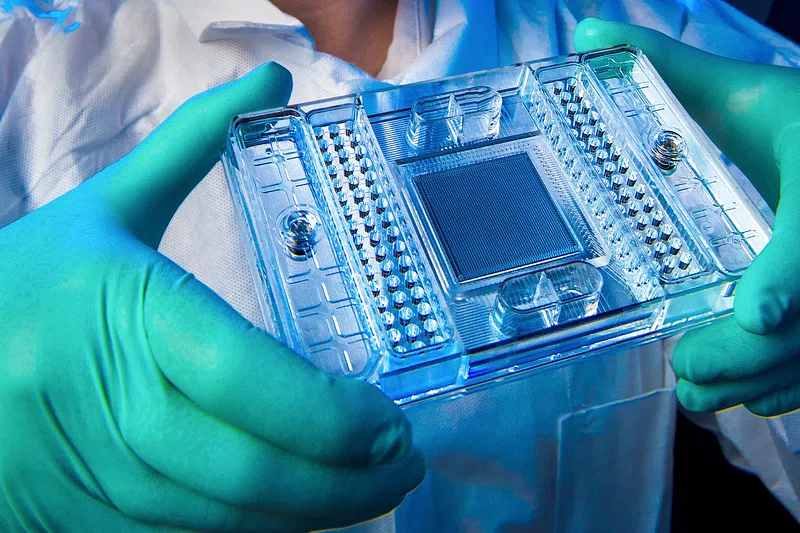Introduction: In the ever-evolving landscape of healthcare technology, the journey from wearables to implantables marks a transformative shift that has the potential to revolutionize how we monitor and manage our health. From fitness trackers and smartwatches worn on the outside to sophisticated implants embedded within the body, this article explores the advancements in health tech and the implications of venturing into the realm of implantable devices.
Wearable Technology:
Empowering Health and Wellness Wearable devices have become ubiquitous in our daily lives, serving as powerful tools for monitoring and improving health and wellness. Fitness trackers, smartwatches, and other wearables provide real-time data on physical activity, heart rate, sleep patterns, and more. The accessibility and user-friendly nature of wearables have empowered individuals to take an active role in their health management.
Integration with Mobile Apps: Wearables seamlessly integrate with mobile applications, allowing users to track and analyze their health metrics over time. This connectivity enhances the ability to set and achieve fitness goals, monitor chronic conditions, and make informed decisions about lifestyle and well-being.
The Evolution to Implantable Devices:
Beyond External Monitoring: As technology advances, the healthcare industry is witnessing a shift from external monitoring to implantable devices that can provide even more precise and continuous health data. Implantables go beyond the surface-level monitoring offered by wearables, entering the realm of real-time, internal data collection.
Implantable Sensors and Biochips: Implantable sensors and biochips are at the forefront of this transition. These miniature devices can be embedded under the skin to monitor specific biomarkers, providing invaluable insights into an individual’s health. From glucose levels for diabetes management to continuous monitoring of vital signs, implantables offer a level of accuracy and immediacy that was previously unattainable.
Medical Applications of Implantable Devices: Revolutionizing Disease Management Implantable devices hold significant promise in the field of disease management and treatment. For individuals with chronic conditions, such as diabetes or heart disease, implantable sensors can offer continuous monitoring and immediate alerts in case of anomalies. This real-time data enables timely intervention and personalized treatment plans.
Neurostimulation and Brain-Computer Interfaces: Beyond monitoring, implantable devices are making strides in the field of neurostimulation and brain-computer interfaces. These technologies have the potential to revolutionize the treatment of neurological disorders, such as Parkinson’s disease and epilepsy, by directly interfacing with the nervous system and modulating neural activity.
Challenges and Ethical Considerations:
Navigating Privacy and Security Concerns: The integration of implantable devices into healthcare raises significant challenges related to privacy and security. As these devices collect and transmit sensitive health data, safeguarding patient information becomes paramount. Striking a balance between innovation and data protection is crucial to fostering trust in these emerging technologies.
Ethical Considerations of Enhancement Technologies: Implantables also raise ethical questions surrounding the use of enhancement technologies. As the line between medical necessity and personal choice blurs, discussions about the ethical implications of enhancing human capabilities through implantable devices become essential. Considerations regarding consent, equality of access, and the potential societal impact need careful examination.
The Future of Health Tech: Personalized and Precise Healthcare The transition from wearables to implantables signifies a broader trend towards personalized and precise healthcare. Implantable devices offer a level of granularity in health monitoring that can lead to more accurate diagnoses, tailored treatment plans, and improved outcomes for patients. As research and development in health tech continue, the integration of these technologies into mainstream healthcare is expected to grow.
Collaboration and Regulatory Frameworks: The successful integration of implantable devices into healthcare requires collaboration among technology developers, healthcare professionals, and regulatory bodies. Establishing robust regulatory frameworks to ensure safety, efficacy, and ethical use is paramount. Ongoing dialogue between stakeholders is essential to address challenges and unlock the full potential of these transformative technologies.
Conclusion:
The journey from wearables to implantables represents a remarkable leap in the realm of health tech, promising a future where healthcare is not only proactive but intimately connected to the individual’s internal health landscape. While wearables have already empowered users to monitor and manage their health, implantables usher in a new era of precision and immediacy. As the field continues to evolve, balancing innovation with ethical considerations will be crucial in shaping a healthcare landscape that is not only technologically advanced but also mindful of privacy, security, and the broader societal implications of enhancement technologies. The next frontier in health tech is upon us, and the possibilities are as vast as the potential for improved human health and well-being.
